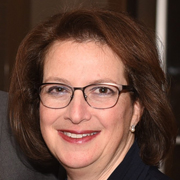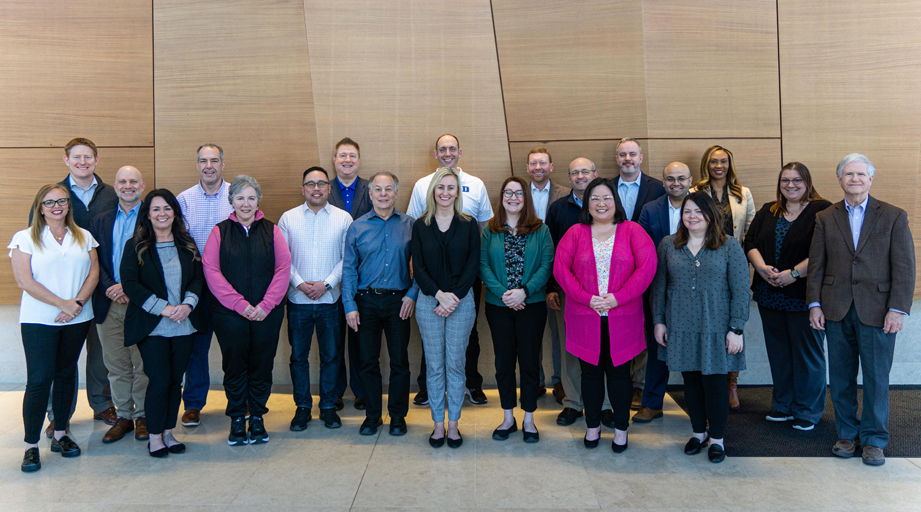
Chuck Beams, BSPharm, MBA, maintains a busy schedule as chief pharmacy officer at East Alabama Health in Opelika. When he saw an email highlighting ASHP's new Certified Pharmacy Executive Leader (CPEL) credential, it piqued his interest. He applied and participated as part of the March 2023 cohort.
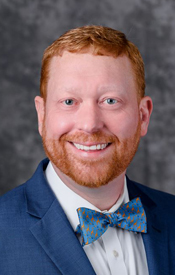
CPEL credential provides valuable connections
“It was definitely worth my while,” Beams said. “The biggest value is just being able to network with folks who are at similar levels and make connections. I’ve used those connections probably four or five times since we finished the classes.”
The CPEL credential provides national recognition of core competencies in areas such as professionalism and leadership — of people, the pharmacy enterprise, and various activities within and across complex healthcare systems. There is no fee to apply, but applicants must be ASHP members with a valid pharmacy license; a minimum of five years of progressive, sustained leadership and significant managerial oversight; and a history of volunteerism in healthcare-related organizations.
Beyond the online application, approved candidates are placed into cohorts that participate in an in-person, 3.5-day capstone program at ASHP’s headquarters in Bethesda, Md. The capstone is the certifying event and includes facilitated case discussions on a range of topics essential to pharmacy leaders. The CPEL credential is good for seven years.
“It was intense,” Beams said. “There was no real downtime. I enjoyed the pace, and it pushed us to lean on one another and work hard on solutions. The ASHP staff did a great job layering in role-playing and impactful real-world situations. The whole process was very helpful.”
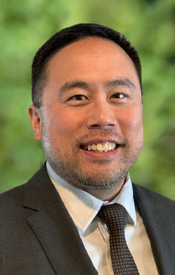
A prestigious group
Andrew Cheung, PharmD, MBA, director of pharmacy informatics at Sutter Health in San Francisco, said he had already participated in other ASHP programs, such as the Pharmacy Leadership Academy and the Pocket MBA for Pharmacists, but was intrigued when he heard about the CPEL program at the 2022 Midyear Clinical Meeting. He applied and became part of the March cohort with Beams and 19 others.
“To me, it exemplifies the highest level of leadership components and credentials for our profession,” he said. “It requires significantly more experience, and it’s really a privilege and an honor to be part of the group.”
For Ozioma Olowu, PharmD, BCPPS, DPLA, assistant vice president at Cook Children’s Medical Center in Fort Worth, Texas, the CPEL program provided an opportunity to expand her horizons. “I thought it would be exciting to get in on the ground level of something like this,” she said.
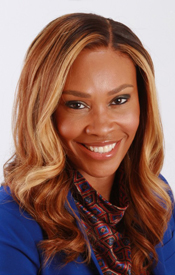
Collaborative problem solving
“One of the things I remember coming away with on the first day of the capstone is thinking we’re really all in the same boat trying to row ourselves to a destination of better patient care, and all of us don’t, individually, have all the answers,” Olowu said. “When we came together, it was such a dynamic conversation, learning from other people’s experiences, what they’ve done and what’s worked for them, and collaborating in that manner.”
Beams agreed: “We spent a lot of time focusing on the challenges that we have in everyday practice, whether that’s [related to] workforce, or budgets, or drug costs, or cybersecurity. We were going through situations and having to pull together answers as teams.”
“If we’re not careful, we just sit in our little silos trying to chisel out a little wheel that will roll and fix a problem that’s at hand,” he added. “Nine times out of 10, someone has already chiseled the wheel out, and networking through these types of relationships helps us just say, ‘Hey, let me take this wheel.’”
Since completing the program, attendees of the March 2023 capstone set up email and LinkedIn groups where they continue to network. Beams said he has already asked questions a handful of times about situations such as how best to set up meds-to-beds programs and what productivity metrics to use. He received quick answers from others and his pharmacy is making some adjustments based on the feedback.
“Anytime I hit a bump, I’m bouncing questions off the group,” he said, noting that the group committed to helping each other continue to solve problems. “That, to me, is the thing that has been very valuable, having someone to call. So often, we get into these positions, and it’s kind of lonely. There’s just not a whole lot of folks around that you can call. It’s been nice for us.”
One of the CPEL discussions on ethical dilemmas inspired Olowu to create a leadership learning presentation about the topic. “That was one of the most memorable conversations in the CPEL experience and a discussion that I enjoyed having amongst the leaders on my team,” she said. “The teaching and application of what you know is an important thing I’ve taken from that experience.”
Advice for CPEL applicants
Participants said they would highly recommend the program to others. “It was definitely time that was well-invested,” Olowu said. “Getting to understand and collaborate with people with different experiences and have a different mindset is an important skill to have.”
They offered these tips to future applicants:
- Allow time to work on the application, Beams advised. “It’s not something you’re going to sit down and just apply for in 10 minutes.”
- Head to the capstone portion with an open mind, ready to absorb a lot of information from peers. “It’s not very didactic, it’s not like structured learning,” Cheung said. “There’s a lot of networking opportunity with your cohort. That’s the best part of it — networking for five straight days with the most senior leaders representing all these different organizations is quite the experience.”
- Share your knowledge base. “You’re there to learn but also to discover you know more than you think,” Olowu said.
ASHP accepts applications on a rolling basis for the CPEL certification. Visit the CPEL website to learn more about the certification or apply. Applications are due by March 25, 2024, for the next Capstone program, which will be held May 6-9.

